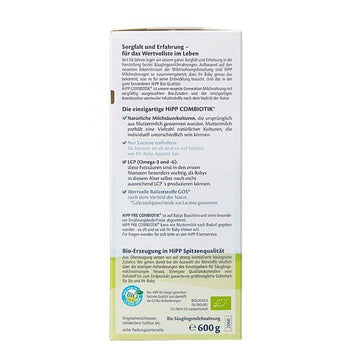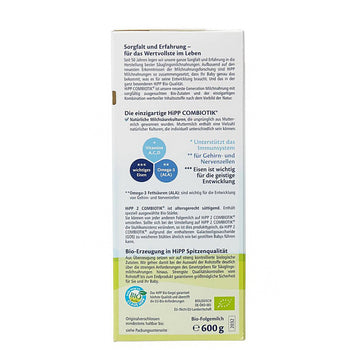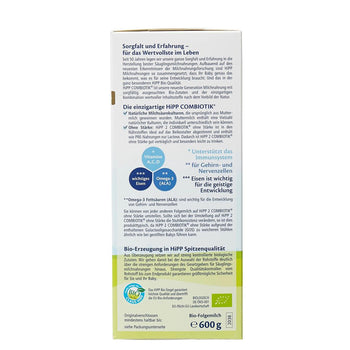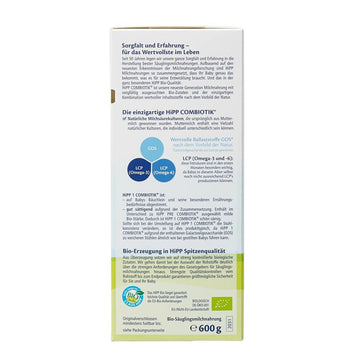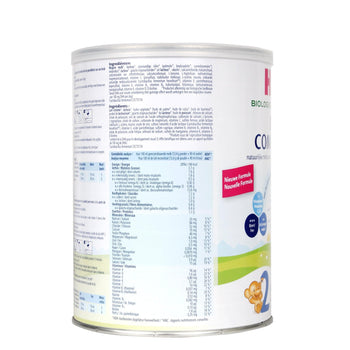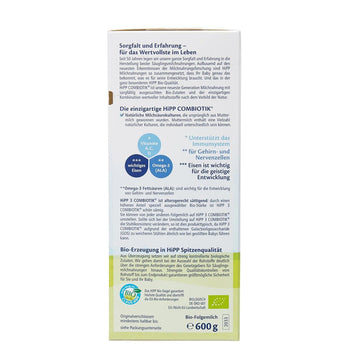Imagine this: You're standing in the baby aisle of your local supermarket, surrounded by a dizzying array of infant formula options. As a new parent, your head is spinning with questions. Which one is best for your baby? What's really in these cans? And why does that European brand, Holle, seem to be creating such a buzz among your parent friends?
Well, grab a cup of coffee (or tea, if that's more your speed), and let's dive into the world of Holle Organic Infant Formula. We're about to unpack the nutritional benefits that have parents from all walks of life – from health-conscious first-timers to eco-warriors and multicultural families – singing its praises.
The Holle Difference: A Nutritional Breakdown
Let's start with the basics. Holle isn't just another formula; it's a nutritional powerhouse backed by strict European standards. But what exactly sets it apart? Let's break it down:
- Organic Goodness: Holle formulas are made with organic ingredients, which means they're free from synthetic pesticides and GMOs. A study published in the British Journal of Nutrition found that organic dairy products contain 50% more omega-3 fatty acids than conventional alternatives [1]. That's a big win for your little one's brain development!
- Biodynamic Agriculture: Here's something you won't find on most formula labels – Holle uses milk from cows raised on biodynamic farms. This holistic approach to farming results in milk with higher levels of conjugated linoleic acid (CLA), which has been linked to improved immune function and body composition [2].
- No Nasties: Unlike many conventional formulas, Holle doesn't contain added sugars, artificial preservatives, or synthetic nutrients. This clean approach aligns with recommendations from the World Health Organization, which advises against added sugars in infant formulas [3].
Holle vs. Conventional: A Nutritional Face-Off
Now, let's put Holle head-to-head with some popular conventional formulas like Enfamil and Similac. Buckle up – this might surprise you!
- DHA Content: Holle formulas contain DHA derived from algae oil, which is more easily absorbed than the fish oil-derived DHA found in many conventional formulas [4]. In fact, Holle's DHA content meets the levels recommended by the European Food Safety Authority, which are higher than FDA requirements [5].
- Protein Quality: Holle uses organic skim milk and whey as protein sources, resulting in a protein profile closer to breast milk. In contrast, many conventional formulas use cheaper protein sources like soy, which may be more difficult for some infants to digest [6].
- Lactose as the Primary Carbohydrate: Unlike some conventional formulas that use corn syrup solids or other added sugars, Holle uses lactose as the primary carbohydrate source. This mirrors breast milk more closely and may support better gut health [7].
- Prebiotics and Probiotics: Holle formulas contain galacto-oligosaccharides (GOS), a prebiotic that supports beneficial gut bacteria. Some studies suggest that infants fed formulas containing GOS have stool patterns more similar to breastfed infants [8].
Catering to Special Needs: Holle's Specialized Formulas
For parents of infants with dietary sensitivities, finding the right formula can feel like searching for a needle in a haystack. Here's where Holle truly shines:
- Goat Milk Formula: Holle's goat milk formula is a game-changer for babies who struggle with cow's milk. Goat milk proteins form smaller, softer curds in the stomach, which can be easier to digest [9]. Plus, it's naturally high in oligosaccharides, which act as prebiotics [10].
- Hypoallergenic Options: For infants with cow's milk protein allergy, Holle offers a hypoallergenic formula made with extensively hydrolyzed proteins. A study in the Journal of Allergy and Clinical Immunology found that extensively hydrolyzed formulas can reduce the risk of allergic reactions in high-risk infants [11].
- A2 Milk Formula: Here's something cutting-edge – Holle offers a formula made with A2 milk. Some research suggests that A2 milk may be easier to digest and could reduce discomfort in some infants [12].
The Eco-Conscious Choice
For the environmentally-minded parents out there, here's some food for thought: Holle's commitment to organic and biodynamic farming isn't just good for your baby – it's good for the planet too. A long-term study published in the Proceedings of the National Academy of Sciences found that organic farming methods can reduce carbon emissions by up to 40% compared to conventional farming [13].
Bringing It Home: Accessing Holle in the USA
Now, you might be wondering, "This all sounds great, but how can I get my hands on Holle formula?" While Holle isn't widely available in U.S. supermarkets, specialized retailers like EuromallUSA have made it easier than ever for American parents to access this European gem. With a wide range of Holle products and expert guidance, EuromallUSA has become a go-to resource for parents seeking the best in infant nutrition.
Nourishing Your Baby, Nurturing Your Peace of Mind
As we've seen, Holle Organic Infant Formula isn't just another option on the shelf – it's a thoughtfully crafted, nutritionally superior choice that caters to a wide range of needs. From its organic, biodynamic ingredients to its specialized formulas for sensitive tummies, Holle offers a level of quality that sets it apart in the world of infant nutrition.
But here's a question to ponder as you mull over this information: In a world where we're constantly bombarded with choices, how do we balance the desire for optimal nutrition with the practical realities of parenting? And more importantly, how might choosing a formula like Holle align with your values and aspirations as a parent?















